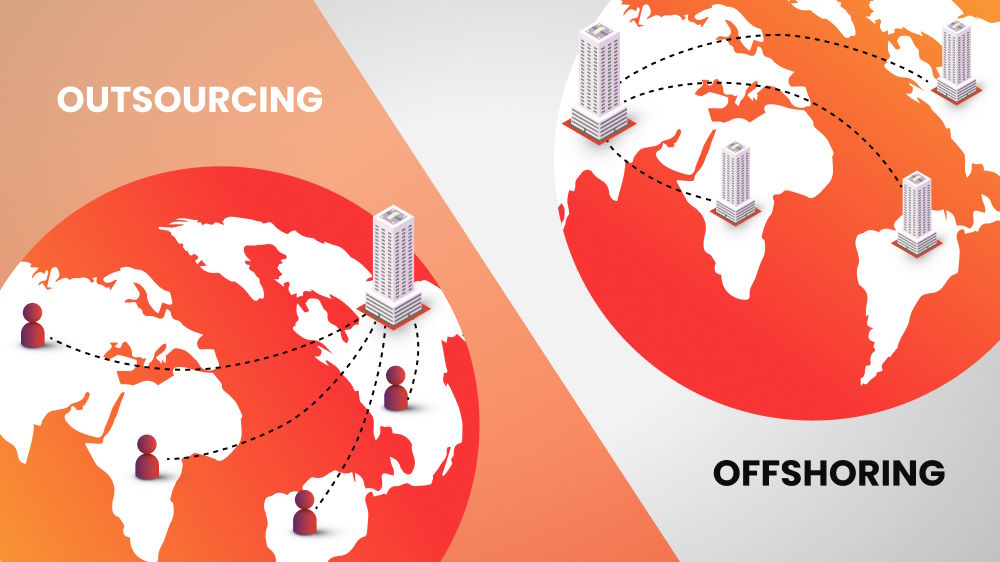Top 10 Key Reasons Why Ruby on Rails Is Great for eCommerce Development

Content Map
More chaptersThe Ruby on Rails (RoR) framework has emerged as one of the most powerful and flexible development platforms for creating rich, dynamic websites. In the eCommerce world, companies have been turning to RoR for a wide range of applications, from small-scale to complex storefronts, from a few product lines to a massive eCommerce site with thousands of users.
So, why does Ruby on Rails have such an edge in the eCommerce market? In this post, we will come up with the top ten of the most compelling reasons to choose RoR for your next e-commerce project.
What Is Ruby on Rails?
Ruby on Rails or simply RoR is a web application framework that is written in the Ruby programming language - one of the best object-oriented programming languages. It follows the model-view-controller architectural pattern that separates the logic of an application into three main components: models, views, and controllers. This gives software developers the ability to make changes to each piece without affecting other parts of the application.
RoR is one of the best web applications frameworks for developing e-commerce websites. A lot of companies worldwide are using Ruby on Rails. It has revolutionized modern web application development and has made the process much more efficient than before.
Why Use Ruby on Rails for Your eCommerce Project?
Ruby on Rails follows the model-view-controller (MVC) architectural pattern and has some of the best features that make it preferable for eCommerce development. The following are some of the top reasons why more and more companies are turning to Ruby on Rails to dominate the e-commerce race:
Easier to Code
Ruby on Rails follows the MVC architecture with a strong emphasis on convention over configuration, which means that coding in RoR doesn’t require manually configuring each and every detail of an application. The most important aspect of using Rails for eCommerce websites is the ability to attach models, controllers, and views and bundle them in a single package, making it possible to create complex web applications without the need for lengthy codes.
RoR developers often develop similar projects faster than programmers who use other frameworks such as PHP and Java. So, when it comes to developing an eCommerce website using Ruby on Rails, you can expect faster delivery of results in terms of both time and cost.
Security
Security is a crucial aspect of any e-commerce website as it keeps your valuable data safe from the prying eyes of cybercriminals. Ruby on Rails uses salted and hashed user passwords by default, so they cannot be easily cracked using brute force attacks to gain unauthorized access to your website. The logic behind this security feature is that the hashed password cannot be converted back to plain text, even if the attacker manages to obtain your user credentials somehow.
Extensibility
Ruby on Rails provides an amazing platform for building scalable eCommerce websites due to its extensibility features. Ruby on Rails apps can be extended to create different features using “gems.” The RubyGems library is used for reusable packaging components and distributed among Ruby developers. Using gems, you can keep your application updated with the latest third-party tools and services as well as enhance its functionalities. You can also search for specific gems based on the type of application you want to develop using the Ruby Gems online directory.
In addition, Ruby on Rails is a very sustainable platform. It uses simple design patterns that new developers can easily understand, allowing them to build and maintain applications without much trouble. So, when you outsource eCommerce web application development to an expert RoR developer, you don’t need to worry about the maintenance of your website in the future.
Community Support
Ruby on Rails is a prevalent web application development framework, which means that there are many experienced RoR developers working around the world. These experts can help you get started quickly, and your project will be in safe hands. The RoR community also has access to plenty of free resources in the form of books, tutorials, and online webinars that will help you get up to speed quickly.
Open Source
Ruby on Rails is an open-source framework for web application development, which means it’s available at no cost to you. You can also modify its source code for your specific needs and integrate the latest features using the open-source RoR community.
Mobile Application Ready
Ruby on Rails comes with native support for building mobile applications, which means that all you need to do is download the required gems and build cross-platform native apps using Ruby on Rails. You can use Ruby Enterprise Edition (REE) to build mobile applications for iOS and Android platforms without having to learn Swift or Java-related programming languages.
Flexibility
RoR allows eCommerce developers to manage the application easily and make quick changes when required. Since Ruby on Rails uses Model-View-Controller (MVC) architecture, it is easy for programmers to work around errors and make changes to the application. It also allows them to use any new programming language for added functionalities.
No Vendor Lock-in
When you build an e-commerce website using the Ruby on Rails framework, it’s easy to move your application from one hosting provider to another. Since Ruby on Rails is a popular web application development platform, many hosting providers provide support for RoR applications. So, if you need more resources or space at some point in time, move your application to another platform without making any changes in its source code.
Easy to Learn
Ruby on Rails framework follows the model-view-controller architecture, making it easy to add or replace code when required. In addition, RoR is a powerful framework that offers many built-in features, making it easier for developers to learn and use them quickly. You can build your eCommerce website using Ruby on Rails without any extra effort.
Lots of Resources and Tools Available
RoR has emerged as one of the most popular options for building online stores, especially since many powerful open-source tools like Spree and Shopify Plus make it easy to create e-commerce websites using Ruby on Rails. Moreover, Ruby on Rails has plenty of tools and resources that can be used to enhance your e-commerce applications.
Types of Ruby on Rails eCommerce Platforms
These are some of the common types of RoR eCommerce platforms:
Business to Consumer (B2C)
These are business-to-consumer eCommerce websites that offer an online shopping experience to their customers. These products are available for purchase directly by the customer, who assumes total control over the entire buying process.
Business to Business (B2B)
It is a business model in which Ruby on Rails development companies provide online e-commerce services and products to businesses rather than consumers.
Business to Business to Consumer (B2B2C)
These are businesses that offer products and services directly to consumers. An example of a B2B2C is a company selling its products through a direct sales channel or through affiliate marketing.
Subscription-based
In this type of eCommerce website, the products are only available for purchase on a subscription basis.
Ruby on Rails e-commerce platforms is well-suited to serve the business need of both B2C and B2B online retailing models.
Some of the Most Common Ruby on Rails E-commerce Platforms Available Today
Ruby on Rails eCommerce platform is a software system that allows businesses to create and manage their online stores. It typically provides features such as shopping carts, product catalogs, order management, and payment processing. There are a number of different Ruby on Rails eCommerce platforms available, each with its own set of features and benefits. Ruby on Rails eCommerce platforms help reduce the complexities of managing websites for entrepreneurs as it is equipped with various tools and plugins. It saves time and effort on development, thus, saving money as well. Furthermore, Ruby on Rails has been proven to be effective mainly because it allows businesses to save time and resources to focus on what matters most.
Selecting the right e-commerce platform is an important decision in order to leverage those benefits. Here are some most popular Ruby on Rails e-commerce platforms you should know:
Spree Commerce
Spree is an e-commerce platform built using the RoR framework, which enables the user to build their own online shops. It includes various features like multi-currency support, unlimited product variations, multiple packaging options, and many more. It is a flexible Ruby on Rails shopping cart system for the rapid development of e-commerce websites.
Solidus
Solidus is a full-featured, open-source eCommerce solution built with the Ruby on Rails framework. It offers a full set of features for creating an online shopping website, from selling the products to accepting payments and managing your inventory. Some of its key features include unlimited product variations, custom order workflows, and merchandising rules.
Shopify Plus
Shopify Plus provides a customizable shopping cart with easy integrations with many services, including automated order fulfillment. It is known to be efficient in selling both physical and digital goods online. With this platform, entrepreneurs can set up an online store that is ready for sales within minutes.
BigCommerce
BigCommerce allows you to design your own e-commerce website without the need to write code as it is highly customizable. It provides free and paid themes for your business to choose from, making your website look unique in minutes.
Conclusion

RoR is a great option for eCommerce development because it offers a number of advantages over other frameworks. Its popularity and community support mean that you will have no trouble finding developers who are familiar with the framework, and its robust feature set can help you build a powerful online store. Now, you can understand quite well the reasons why you should choose Ruby on Rails for your next e-commerce project.







